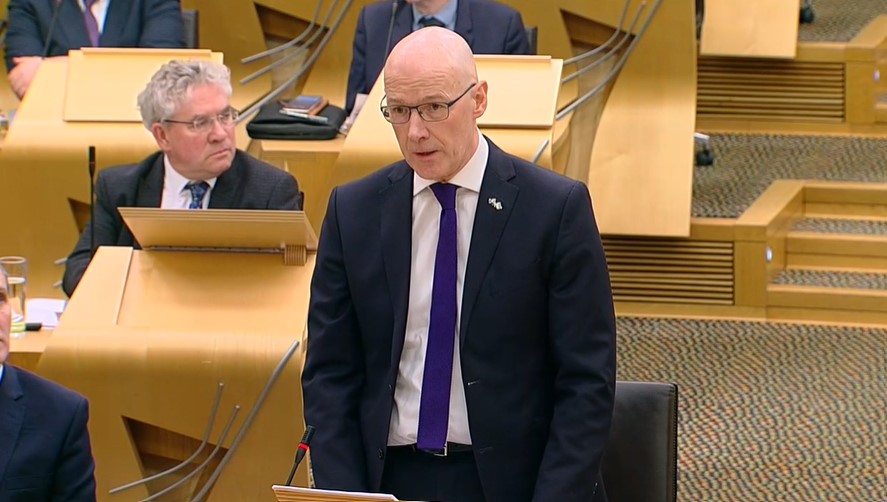The day after a budget statement is where things often start to unravel, but with this one the problems started in advance.
The BBC’s Glenn Campbell got wind of the finance secretary’s plans to increase the higher rates of income tax. The presiding officer was furious, she actually went quite red in the face as she chaired parliament.
She delayed the statement by more than half an hour to haul the First Minister and her deputy over the coals. There was even some speculation that she might take the leaked statement as read and just allow questions.
In the end, perspective was restored and John Swinney apologised profusely, denying that the leak was anything to do with him, although I doubt anyone really thought it was.
The statement he delivered took me a little by surprise, although a little less because of the leak. It was much bolder than I had expected. He was never going to do anything to cut the tax take, but putting up the rates for higher and top-rate tax payers is quite a big deal. It further expands the tax differential between Scotland and the rest of the UK.
The big one was the higher rate – 42p in every pound for those earning over £46,662. That is 2p more than the equivalent rate in England. And it kicks in at a lower threshold, almost £7000 lower than England, where the 40p rate starts on earning above £50,271, substantially increasing the tax differential between Scotland and the rest of the UK.
The SNP election manifesto said they wouldn’t do that, although the pledge contained a get-out clause about changing circumstances, and let’s face it, circumstances have changed hugely since the 2021 Holyrood election.
The Scottish Government maintains that the majority of people in Scotland will pay slightly less income tax than the rest of the UK – those earning less than about £27,000. It’s part of what the Scottish Trade Unions Congress had been calling for.
Swinney branded it a penny for patient care, justifying it with an increase in health and social care spending. He will be hoping it lands better with voters than the SNP’s ‘penny for Scotland’ did in the first Scottish Parliament election in 1999. The Conservatives will challenge it for “making Scotland the highest taxed part of the UK”, and Labour say it will take some justification with voters.
Next year’s income tax take is expected to rise by more than £2bn, partly through those tax rises and partly through increased pay.
Health gets an extra billion – Swinney says that is more than the uplift in England. Social security spending is going up by more than a billion, with the cost of the Scottish Child Payment more than doubling to £442m.
Cosla had demanded an extra billion pounds – they are getting £550m (and there is more on tax still to come as the finance secretary put no cap on council tax, increases leaving local authorities to decide).
The £20m set aside for the referendum is being redirected into a fuel security fund and there was some good news for rail users – a pilot scheme scrapping peak fares for six months right across Scotland. There were cuts too, in roads, regeneration and tourism spending.
The Greens, in government alongside the SNP, said it was the greenest budget ever. The Lib Dems described it as bleak. It was certainly much more interesting than the usual Swinney budget, but now every line of it will be picked over to find winners and losers.
And there is still the big issue of sorting out spending this year before we get to the next financial year.
Follow STV News on WhatsApp
Scan the QR code on your mobile device for all the latest news from around the country


 Scottish Parliament
Scottish Parliament

























